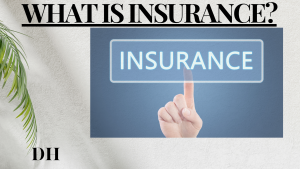
Overview
Are you overwhelmed by debt and struggling to manage your finances? Imagine gaining control over your debt and achieving financial freedom. Mastering Debt: A Comprehensive Guide to Effective Debt Management offers proven strategies to transform your financial life, providing practical steps to reduce debt, lower interest rates, and secure your financial future.
Why it’s essential to tackle debt head-on
Tackling debt is crucial for achieving financial stability and peace of mind. By prioritizing debt payments, you can save on interest charges and pay off your debts faster. This proactive approach also helps prevent financial strain and improves your credit score.
- Prioritizing debt tackling enables you to focus on high-interest debts first
- Reducing the total amount of debt owed and saving on interest charges
- Preventing financial stress and improving credit score by paying off debts promptly
Disclaimer
This post contains affiliate links. We may earn a commission if you purchase through our links at no extra cost to you. Thank you.
Seek online help and resources.
Importance of getting in touch with debt management professionals
Contacting debt management professionals is crucial for effectively managing your debt. They can help negotiate lower interest rates and create a debt management plan to consolidate your payments into one monthly instalment.
- Debt management professionals have the expertise to guide you through prioritizing and paying off your debts efficiently.
- By working with these professionals, you can save money on interest charges and streamline your repayment efforts, ultimately improving financial stability.

Explore tools and resources available for debt management.
Managing debt effectively can be challenging, leading to financial stress. Many need more knowledge and resources for proper debt management, making staying on top of their financial obligations challenging.
Ineffective debt management results in accumulating high interest rates and fees. This can negatively impact credit scores and financial health, causing long-term financial difficulties.
Explore budgeting apps, credit counselling services, and debt consolidation options. These tools simplify and improve debt management.
- Budgeting apps for tracking expenses
- Credit counselling services for personalized plans
- Debt consolidation to reduce interest rates and payments
Get organized
Assess your accounts and debts.
Assessing your accounts and debts is crucial for effective debt management. Begin by listing all your financial accounts and outstanding debts.
Evaluate each account’s balance, interest rate, and monthly payment. This helps prioritize debts and create a repayment plan.
- Credit card accounts
- Student loans
- Personal loans
- Mortgage
- Auto loans

Check credit reports
Regularly check credit reports to monitor your financial health. Reviewing them helps identify errors and track your credit score.
Order your free credit reports from significant bureaus annually. Look for inaccuracies and dispute any errors promptly.
- Visit AnnualCreditReport.com
- Request reports from Equifax, Experian, and TransUnion
- Review details for accuracy.
- Dispute any errors found.
- Monitor changes over time.
Explore debt consolidation options.
I explored debt consolidation options to simplify my repayment process and reduce interest rates. Combining my multiple debts made managing payments more manageable.
I researched various consolidation methods and chose the best fit for my situation, leading to better debt management.
- Consider balance transfer credit cards.
- Look into personal loans for consolidation.
- Explore home equity loans.
- Evaluate debt consolidation programs.
- Compare interest rates and terms.
Evaluate spending habits
I needed to evaluate my spending habits to improve my financial health. Analyzing where my money goes helped me identify unnecessary expenses.
I created a realistic budget and set financial goals by tracking my spending. This led to better debt management.
- I tracked daily expenses.
- I categorized spending by type.
- I identified non-essential purchases.
- I set a monthly budget.
- I adjusted my spending habits accordingly.
Determine the amount to be paid.
You need to calculate your total debt and monthly payments to determine the amount to be paid. This ensures effective debt management.
Assess your income and expenses, then allocate funds for debt repayment. This helps you stay on track financially.
- List all outstanding debts
- Calculate total monthly payments.
- Review your monthly income.
- Allocate a portion of income to debts.
- Adjust your budget for consistent payments.
Create a budget for extra payments.
To create a budget for extra payments, I identified surplus income. This allowed you to reduce debt more quickly and efficiently.
I allocated extra funds to principal payments, lowering your interest costs. Adjust your spending to free up additional money.
- Review your income and expenses.
- Identify surplus income
- Allocate surplus to debt principal.
- Track extra payments made.
- Adjust your budget to maximize extra payments.
Strategies for reducing debt
Paying bills on time
Paying bills on time is crucial for maintaining good credit and avoiding late fees. I set reminders to help you stay on track.
I automated payments to ensure consistency. This simplifies your process and ensures you get all the due dates.
- Set reminders for due dates.
- Automate bill payments
- Monitor account balances regularly.

Monitoring credit regularly
Monitoring credit regularly helps you stay aware of your financial health. I check my credit reports to ensure you identify any discrepancies.
Regular monitoring also helps you catch potential fraud early. This proactive approach safeguards your credit score and financial stability.
- Check your credit reports annually.
- Sign up for credit monitoring services.
- Review your credit card statements monthly.
Considering lower interest rates
Considering lower interest rates can significantly reduce your debt burden. I researched options to help you find the best rates available.
Switching to lower interest rates can save you money over time. This strategy helps you pay off debt faster.
- Compare rates from different lenders.
- Refinance high-interest loans
- Negotiate with current creditors for lower rates.
Seek professional help
Finding credit counsellors
Finding credit counsellors can provide valuable guidance for managing debt. I researched reputable services to help you get expert advice.
Credit counsellors offer personalized plans to improve your financial situation. Their expertise can be a crucial step in your debt management journey.
- Research accredited counselling agencies
- Read reviews and testimonials.
- Schedule consultations to find the right fit
- Verify certifications and credentials.
- Ask about fees and services provided
Dealing with debt collectors
Dealing with debt collectors can be stressful. I learned strategies to help you handle these interactions more effectively and confidently.
Knowing your rights is crucial when dealing with debt collectors. This ensures they treat you fairly and within legal boundaries.
- Document all communications
- Verify the debt’s legitimacy.
- Know your rights under the Fair Debt Collection Practices Act.
- Request written validation of the debt
- Communicate in writing whenever possible.
Prioritize debts
Prioritizing debts helps you manage payments effectively. I developed a system to assist you in paying off high-priority debts first.
By focusing on high-interest debts, you can reduce overall interest costs. This approach accelerates your debt repayment plan.
- List all outstanding debts
- Rank debts by interest rate
- Focus on high-interest debts first.
- Make minimum payments on other debts.
- Reassess priorities regularly
Build an emergency fund.
Building an emergency fund provides financial security. I saved gradually to help you cover unexpected expenses without incurring more debt.
An emergency fund acts as a financial cushion. It prevents you from relying on credit during unforeseen circumstances.
- Set a savings goal
- Automate monthly contributions
- Start with a small, manageable amount.
- Increase savings gradually
- Keep the fund in a separate account.
Explore different ways to pay down debt.
Exploring different ways to pay down debt can lead to faster results. I researched various methods to help you find the best fit.
Each debt repayment strategy has its advantages. Finding the right one for you can significantly impact your debt management journey.
Consider the debt snowball method, where you pay off smaller debts first to build momentum.
Alternatively, the debt avalanche method focuses on paying off high-interest debts first to save on interest costs.
Debt consolidation options and balance transfer offers can simplify your payments and reduce interest rates.
Seek professional advice if needed to tailor the best approach for your situation. By using the right strategies, you can effectively manage your debt and work towards financial stability.
Recap:
Managing debts effectively involves various strategies like debt payments, debt consolidation, and creating a debt management plan. Utilizing debt settlement companies and focusing on high-interest debts can reduce overall debt.
Understanding the impact of credit card debt, outstanding balances, and balance transfer fees is crucial. Addressing ballooning credit card balances and paying off the most significant balances first can significantly improve your financial situation.
Planning for retirement with retirement annuities, monthly retirement checks, and retirement savings ensures financial security. Considering personal bankruptcy and federal bankruptcy can provide relief if needed.
Building an emergency fund and utilizing mutual funds for long-term savings are essential. Over time, these measures help achieve financial stability and meet various life milestones.
Conclusion:
Paying bills on time and monitoring your credit score can improve your financial health. Consistently making payments on time and understanding credit score impacts are crucial for maintaining an acceptable credit score.
Setting and achieving financial goals, such as education savings and business goals, provides a clear path forward, helping you stay focused on your financial objectives.
Life insurance and planning for life milestones help protect your future and ensure income for life. Combining financial education, targeted savings, and strategic debt management leads to a stable and prosperous economic life.
A well-rounded approach to debt management and financial planning is critical to long-term success and security.
F.A.Q.s
- What’s the best way to manage debt?
The best way to manage debt is by creating a budget, prioritizing high-interest debts, and exploring consolidation options. Regularly monitoring your spending and seeking professional advice can also help.
What are the three most significant strategies for paying down debt?
- Debt Snowball Method: Pay off smaller debts first to build momentum.
- Debt Avalanche Method: Focus on high-interest debts to save on interest costs.
- Debt Consolidation: Combine multiple debts into one payment to simplify and lower interest rates.
What is the fastest way to budget to get out of debt?
The fastest way to budget to get out of debt is to track all expenses, cut non-essential spending, and allocate extra funds to debt repayment. Using budgeting apps can streamline this process.
External Links
Pages that search results are linking to (excluding internal links):






